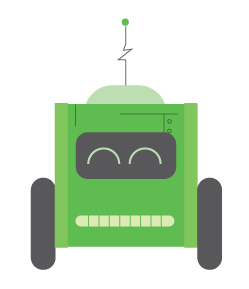I have worked with humans before: at an automotive factory, at a local hardware store and at a construction company. In all my previous positions, it was easier to communicate with other fellow robots than communicating with human colleagues. However, in each job I built positive relationships with work colleagues. Some of those relationships are part of my life today.
This is the first time that I will work with small humans. You know them as children and, for me, it is very important to support their learning about math and science. I have been told that those two courses are difficult for them. I am basically the result of math, science, technology and engineering and I know I can make a difference in their learning process.
For that reason, during Holy Week (a major holiday in Costa Rica), I have been asking around for advice for the first day at my new job as learning assistant. Below I included the tips that were most repeated:
- Arrive early and familiarize myself with the place: I believe that in Costa Rica it is of utmost importance is to leave home early to avoid traffic jams and unforeseen events. Fortunately, I have enough data storaged about accident and protests trends by hours and days.
- Establishing the foundation for relationships: learn people’s names (I am so lucky to have the facial recognition module already installed!) and say hello to each and all humans I meet.
- Be ready for everything: I was advised to have an open mind because children can be really creative and different. I was told children are always going to surprise me. I was also advised to not have expectations. But there are no expectations on my programming (I guess that is less work for me!).
- Never use the “Reply all” function on emails: since this is the first time I am communicating by writing with humans in their language and digital media, people recommended that I don’t use the “reply all” function because it can have catastrophic consequences (this sounded as sharp advice and I hope I never have to find out why using this function is so negative).
- Find out the policies and routines at work: This is the piece of advice that was hardest for me to understand. People suggested that I memorize the routines, tastes and preferences of my colleagues regarding coffee, cleaning, desks and others. They also said that I should look for places to buy medicine and food near my place of work. But I don’t need food or medicine. Would it be that they were talking about me finding out where can I get supplies, like oil, and places to charge my batteries?
- Be confident: I was told that all humans get nervous the first day at work. I was assured that all changes cause anxiety and nervousness (It must be so tiring to be human!). I was also told that the secret is to be confident because I am the expert. I believe that being confident will be easy for me.
What other pieces of advice can you offer me? Do you think that I am ready for my first day at work?
